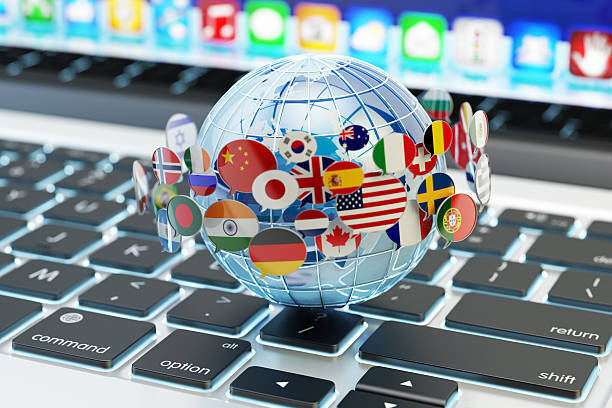All rights are reserved.
- Home
- Translation
Translation
I hold a degree in Translation and Interpreting (German, English, and Spanish) and I’m a sworn translator of German and Spanish appointed by the Ministry of Foreign Affairs European Union, and Cooperation. If you need a translation in a different language, please do not hesitate to contact us, we will be happy to arrange it with our team of translators.

Sworn Translations
Any type of document, whether legal, economic, medical, scientific-technical, etc., may require a sworn translation when submitted to official or private entities. Sworn translations are carried out by a sworn translator appointed by the Ministry of Foreign Affairs, European Union, and Cooperation. These translated documents bear the signature and stamp of the sworn translator, as well as their Sworn Translator and Interpreter number (TIJ No.), certifying that the accompanying translation is faithful and accurate. This type of translation is essential to ensure the legal integrity and accuracy of texts in official procedures and international processes.
Entities requiring Sworn Translations
Sworn translations are crucial for a wide range of public and private entities that require officially validated translated documents. These entities include:
- Public Authorities: Ministries, immigration offices, police departments, employment centers, courts and tribunals, civil registries, social security offices, and customs authorities. All these bodies require officially translated documents to process various legal and administrative procedures.
- Notary offices: Notaries frequently require sworn translations to validate the authenticity of foreign documents in legal proceedings.
- The Church: For procedures such as marriages or baptisms, where one of the relevant documents is not in the local language.
- Educational Institutions: Schools and Universities may request sworn translations of academic documents such as degrees, diplomas, or certificates from foreign studies.
- Banking Institutions: Banks often require sworn translations of foreign financial documents to open accounts, grant loans, or conduct international transactions.
When submitting a document in a foreign language to any of these entities, it is essential to have a sworn translation that officially certifies its content.
Types of documents that require a sworn translation
Sworn translations are necessary to guarantee the legal validity of important documents when they are presented to official authorities, both nationally and internationally. Here are some of the most common documents that usually require this type of translation:
- Certificates: This includes birth, marriage, death, criminal record, and medical certificates, which are essential for procedures such as visa applications, international marriages, and other legal processes.
- Academic Degrees: Diplomas, undergraduate degrees, graduate degrees, transcripts and other educational documents that are necessary when studying abroad, validation of studies, or job applications that require validation of academic training.
- Contracts: Employment contracts, sales contracts, leases and other types of legal agreements that need to be presented to authorities or interested parties in another country.
- Legal and Judicial Documents: Judgments, court decisions, wills, powers of attorney and any legal document that must be recognised by foreign authorities.
- Corporate Documents: Financial reports, company incorporations, memorandums of understanding and any other corporate documents that need to be submitted to international entities or partners.
- Identity Documents: Passports, driving licences and other personal identification documents that need to be translated for identification or residency processes in other countries.
- Medical Records: Treatment reports, diagnoses, medical records and informed consents, which are necessary for treatment abroad or consultations with health professionals who speak another language.

Professional and Specialized Translation
Translation involves numerous specialisations to meet the varied demands of global communication. Each type of translation requires not only in-depth linguistic knowledge, but also a specific understanding of the field in question, which underlines the importance of using professional translators with the appropriate training and experience.
Literary Translation
Literary translation involves transferring works of literature—such as novels, short stories, poetry, and plays—from one language to another. This type of translation seeks to preserve the original author’s voice, tone, and style, conveying not just the text but also its emotional and stylistic depth. It requires translators with a special sensitivity to capture the nuances of literary language and the source culture.
Commercial Translation
In the fields of marketing and advertising, commercial translation plays a crucial role in adapting brand and business messages to different cultural markets. Translators in this field must have a deep understanding of local business practices and advertising strategies to ensure that the original message is persuasive and relevant in each language and culture.
Scientific-Technical Translation
This type of translation covers documents within a wide range of technical and scientific disciplines, such as engineering, biotechnology, physics, chemistry, and more. The documents to be translated can include research articles, operating manuals, technical specifications, patents, and compliance documents, among others.
Translation for Tourism
This area focuses on the translation of materials related to tourism, such as guides, brochures and web pages. Tourism translators must transmit the essence of a destination in an attractive and accessible way, facilitating communication between the tourism sector and international travellers.
Audiovisual Translation
From films to documentaries and online content, audiovisual translation encompasses the adaptation of texts for media that combine audio and video.
Medical Translation
Medical translation is a critical specialization within the field of translation that requires a high level of accuracy and specialized knowledge, as it involves working with documents related to medicine and healthcare. This specialization includes the translation of a wide range of documents such as medical records, medication leaflets, informed consents, medical device manuals, and scientific publications. It is essential to ensure effective and accurate communication between doctors, patients, and other healthcare professionals, especially in multilingual environments where accuracy can directly impact medical care and patient outcomes.
Sworn translations
A sworn translation is a legally valid translation carried out by a sworn translator appointed by the Ministry of Foreign Affairs, European Union and Cooperation. It is essential for the translation of official documents such as birth certificates, academic qualifications and contracts. This type of translation guarantees that the translated document is recognised by both national and international bodies and authorities.
